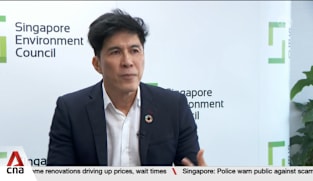Rahayu Mahzam on Oaths, Declarations and Notarisations (Remote Methods) Bill and constitutional amendment bill
Individuals and businesses in Singapore can have the option to make certain statutory declarations, oaths and affirmations through electronic means, such as live video or TV link instead of in person. They can also opt to notarise documents through remote means. This is in line with the Government’s efforts to facilitate electronic transactions to make it more convenient and efficient for individuals and businesses. They aim to ensure that the law does not hinder but instead supports innovation and digitalisation of business processes, said Senior Parliamentary Secretary for Law Rahayu Mahzam. She highlighted the proposed changes during the second reading of the Constitution of the Republic of Singapore (Amendment No. 2) Bill and Oaths, Declarations and Notarisations (Remote Methods) Bill in Parliament on Wednesday (Aug 2). These include setting minimum requirements on the quality of electronic means of communication. Ms Rahayu stressed that the framework is “enabling and not prescriptive”. It provides individuals, businesses and service providers with an electronic option for various legal processes and does not mandate the use of such electronic options. This means that the public can continue with their existing in-person and/or paper-based processes. Ms Rahayu said the framework is crafted to strike a balance between convenience and efficiency and safeguarding the integrity of the process. The bills have been designed to be “technology-neutral”, she said.
Individuals and businesses in Singapore can have the option to make certain statutory declarations, oaths and affirmations through electronic means, such as live video or TV link instead of in person. They can also opt to notarise documents through remote means. This is in line with the Government’s efforts to facilitate electronic transactions to make it more convenient and efficient for individuals and businesses. They aim to ensure that the law does not hinder but instead supports innovation and digitalisation of business processes, said Senior Parliamentary Secretary for Law Rahayu Mahzam. She highlighted the proposed changes during the second reading of the Constitution of the Republic of Singapore (Amendment No. 2) Bill and Oaths, Declarations and Notarisations (Remote Methods) Bill in Parliament on Wednesday (Aug 2). These include setting minimum requirements on the quality of electronic means of communication. Ms Rahayu stressed that the framework is “enabling and not prescriptive”. It provides individuals, businesses and service providers with an electronic option for various legal processes and does not mandate the use of such electronic options. This means that the public can continue with their existing in-person and/or paper-based processes. Ms Rahayu said the framework is crafted to strike a balance between convenience and efficiency and safeguarding the integrity of the process. The bills have been designed to be “technology-neutral”, she said.



















